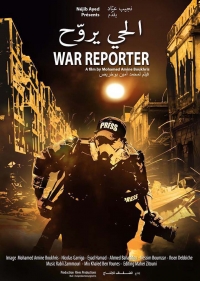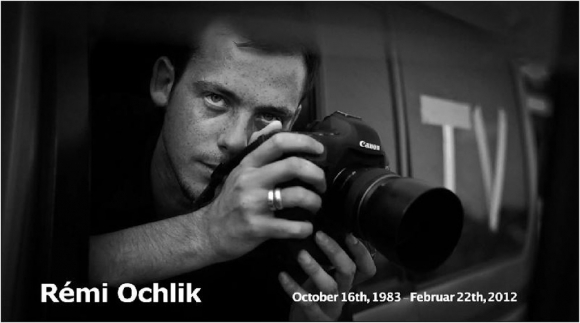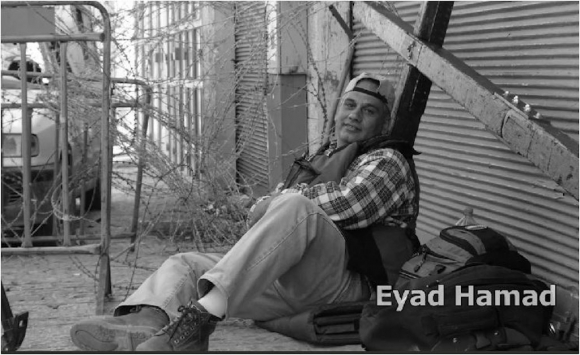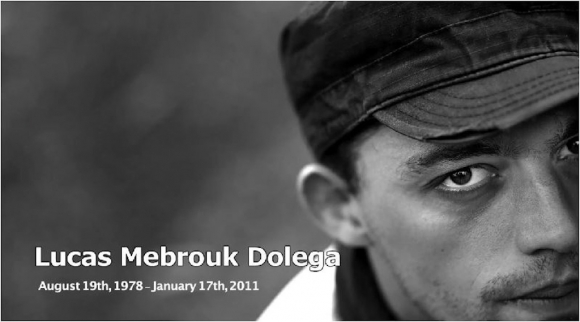War Reporter: a remarkable film takes us into the dark heart of war photography
posted Monday, March 10, 2014 at 2:42 PM EST

What drives a photographer to risk their life to get a story? A new documentary, "War Reporter" tries to get inside the minds of photojournalists and honor those who've perished while reporting the conflicts sweeping across North Aftrica and the Middle East. First screened on February 12, 2014, in Tunisia as part of the Rencontres des Réalisateurs de Films Tunisiens, it is an extraordinary documentary about the photojournalists and cameramen who are covering the Arab Spring.
Mohamed Amine Boukhris, a young war reporter himself, shot much of the documentary while on assignment covering the Arab Spring. As he told me, he sees these photographers, many his friends as, "…outsized reporters, who are our eyes and ears in the heart of conflict and the most violent clashes, and at the risk of their own lives." Through "…their own testimonies we discover their own truths, contradictions and especially their humanity."
The film is as violent as the uprisings themselves and often, amidst firefights and debris, photographers like Rémi Ochlik (killed February 22, 2012) speak directly to Amine’s camera. Of war photographers, Amine says, "Every day they watch other people die. But when it comes to 'our own,' when it comes to journalists dying, the subject remains taboo."
"War Reporter" footage is rough, raw and – at times – unbearable. In one scene, photographer Lucas Dolega is wounded in a gas grenade attack in Tunis. He continues filming and talking as he is driven to the hospital, the car bouncing wildly through the city’s shattered streets. Lucas never makes it to the hospital.

It is painful to watch. The goal of presenting the violence is for the viewer to experience what the photographers on the ground experience. It is certainly not the film Hollywood would make. This is no tail of the invincible photojournalist. Sometimes they are afraid and sometimes they run. Sometimes they are wounded and sometimes they die.

The film makes it clear that these war reporters are deeply committed to telling stories that would never be told but for their courage. When they speak on camera, they talk of 'being the world's eyes and ears.' It seems that, more than anything, is what gives them purpose. But as they speak you can feel something else, left unspoken: a certain enjoyment of the extreme pressure and extraordinary danger of their work.

Amine is currently shopping "War Reporters" around to film festivals and has been accepted into the Al Jazeera International Film Festival in Doha, Qatar and the Dubai Film Festival to be held in December. He continues to look to North America and Europe for screenings and hopes that one day the film will be shown in journalism schools and to the general public on TV.
The film is a warning, Amine says. "Young reporters, yearning for a fight, shouldn’t delude themselves. They have to see reality."